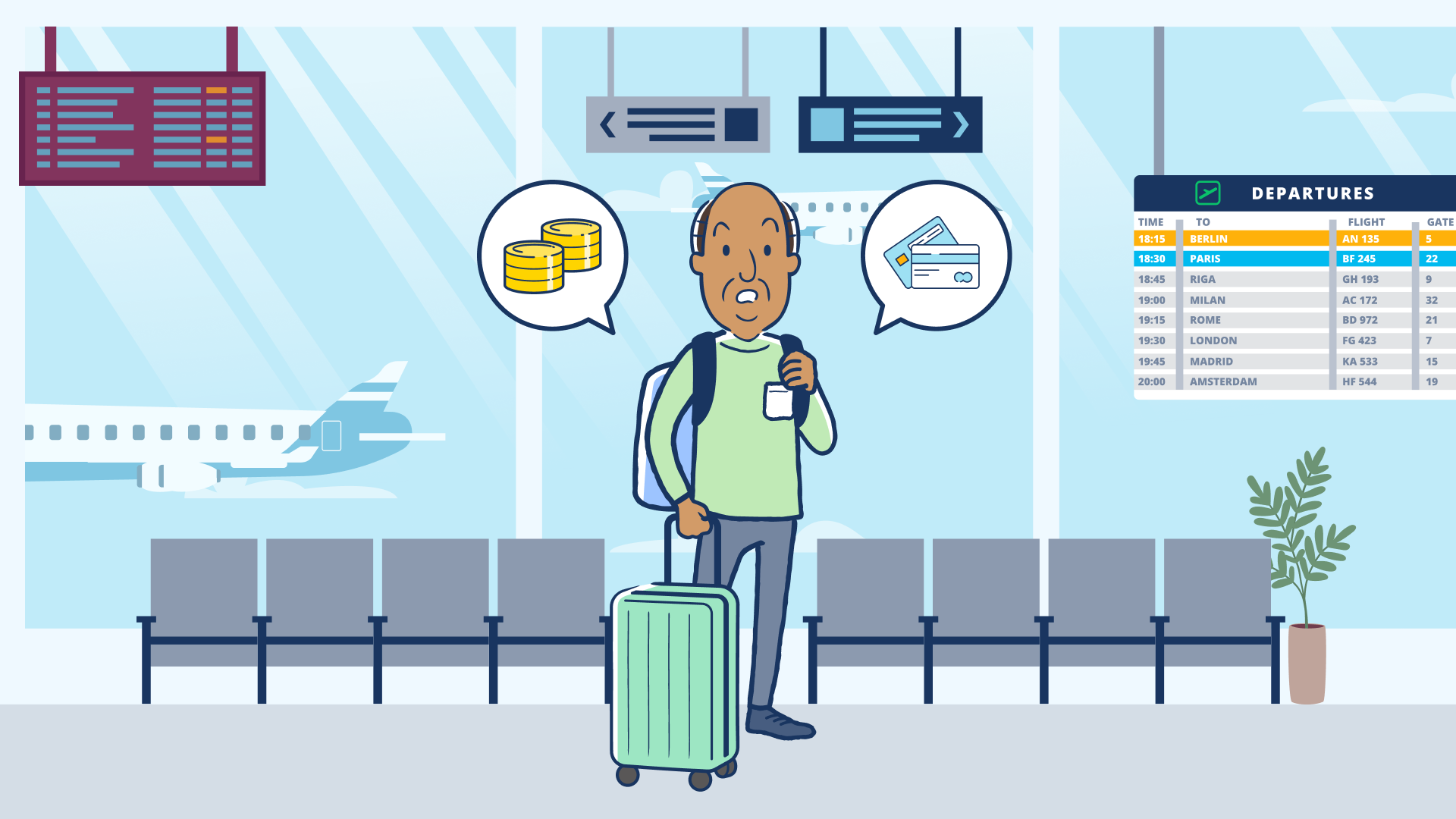Time to read : 3 Minutes
While Aussies love to travel abroad, the same can be said about people choosing Australia as a destination.
In July alone, close to two million people arrived in Australia from overseas, and 1,650,530 departed the county for other shores. The arrivals and departures both increased by 10.4% on the year earlier so it's safe to say wanderlust has taken over the world.
✈️ If you’re looking to return home to Australia after living abroad, or you’re thinking about putting roots down elsewhere, here’s what you should know.
Why preparation is so important
There’s no question that planning a fresh start somewhere new is incredibly thrilling.
For the most part, it’s all butterflies and excitement. I can relate. After all, I’ve moved countries a number of times. So trust me when I tell you, a little planning goes a long way. Especially when it comes to managing your finances.
Here are a few ways to keep your finances in order
💰 Savings: Unless someone (eg your job) is paying for your relocation, a solid financial cushion will come in handy. Especially when moving from or to a giant island in the middle of the pacific ocean.
Beyond the initial flights, there are a bunch of other expenses to consider, like the living costs in your country of residence (housing, bills, groceries, leisure, etc.).
If you plan to start your job hunt once you touch down, there may also be an income gap you need to bridge for the time being, so having access to backup funds is crucial.
🩹 Insurance: Insurance requirements can vary from country to country, but in some, you may need to consider private insurance until you’re eligible for a government-funded scheme like Medicare.
Some insurance providers offer options are specifically tailored to expats, so this can be a good place to start.
💲 Taxes: Tax requirements also vary from country to country, so make sure to research what applies in both your home country and your destination.
While some countries may allow you to just pay taxes where you earn money, others require you to pay double taxes. If you’re a US citizen, for example, you can expect to pay US taxes on your overseas income.
💸 Money transfers: I can vouch that checking exchange rates will soon become second nature. And you’ll notice that the rates traditional banks give may not get you the most bang for your buck.
On top of that, they usually come with hefty international transaction fees, so it pays to shop around.
Independent transfer services, like Wise or Western Union, often offer competitive rates with much lower fees.
Plus, you usually get your money in a day or less. Personally, I prefer to transfer money as needed. This way, I can take advantage of changing exchange rates.
👵🏻 Superannuation: If you move overseas and stop receiving an income in Australia, your super contributions will stop as well (yup).
However, your super provider will continue to charge any administration or insurance fees due on your account.
This will make it harder for your super to continue growing unless you contribute yourself.
Alternatively, you could see if your new country of residence has a similar scheme you could join or consider your own savings or investment plan.
How to manage multiple bank accounts
Naturally, money plays a big part when planning a big move. But so does finding a way to manage your money in your new home.
This means, opening a bank account at your new location. In some countries, you may be able to apply for one before you move.
However, others require details like your new address and phone number to verify your identity. So if you don’t have a new residence and phone number yet, you may have to wait until you get there. Similarly, you might want to consider hanging on to your bank account at home.
Rather than making one bulk transfer, you can also transfer money as you go. This way, you can milk changing exchange rates – or avoid losing a lot of hard-earned cash when the odds are not in your favour.
Some banks offer accounts that are free of charge, so you don’t have to worry about fees gnawing away at your savings.
If you’re moving back to Australia, you may also need to consider your visa status in your current country of residence. Depending on the country and visa, you may need to prove ongoing dependencies to uphold your current status. Here, having financial ties and a bank account can come in handy.
In some countries like the US, not using your credit card for a long time can affect your credit score negatively, so keeping your accounts active and making the occasional small purchase can help make sure things stay in the green.
Bottom line
Preparation is key when it comes to moving overseas, regardless of whether you’re returning to Australia or seeking adventure elsewhere.
And that counts for your finances more than anything else.
After all, money makes the world go round. Making sure you’re financially sound before you head off will help ease the transition, reduce stress and relieve some of the pressures of starting a new life.
🚚 Moving is stressful enough as it is.
Go deeper:
Credit card sweeteners: the good, the bad and the bittersweet
Should you pause health insurance when going overseas for a long trip?
Financial Disclaimer
The information contained on this web page is of general nature only and has been prepared without taking into consideration your objectives, needs and financial situation. You should check with a financial professional before making any decisions. Any opinions expressed within an article are those of the author and do not specifically reflect the views of Compare Club Australia Pty Ltd.
